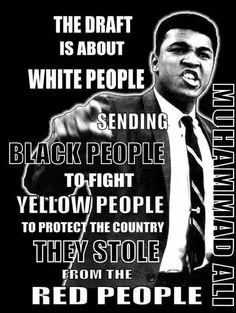Never Say Never
June 11, 2016
I have never blogged, written a blog post, engaged in the act of blogging or responded to the writer of a blog. I’ve read only a few more than none.
In the early days of blogging the few blogs I sampled sounded like the writers were “waxing their carrot”[1] on the page; meaning the blogs were more self-serving, self-pleasing, self-aggrandizing than I had the patience or curiosity for.
I boycotted blogs. Call it an, Emblogo.
Maybe it was the length of the ones I did read. They seemed to go on as if the writer’s greased palm and imagination weren’t enough to reach a climax. They rambled, tumbling on and on like the Biblical genealogies in Chronicles 1: “Adam begat Seth, Seth begat Enos, Enos…” They ranted like those acquaintances – you know, the neg-a-tivos – who can’t find one good thing to say about Jimmy Stewart, Captain Kangaroo, Mother Teresa, or Martin Luther King.
Ok, it was a harsh judgment, and no doubt my own fears and insecurities about putting myself out there and getting naked in public – oh my how I’ve changed since the 60s – had something to do with my insistent dismissiveness.
When my friend Craig who helped me set up this website, and Gabor the student who put the finishing touches on it suggested I have a tab for Blogs, I bristled and then acquiesced, deciding: if it was not one giant step for mankind, it was at the very least a baby step on the journey of my writing life, and one foot out of the Jurassic mind that does not allow me to imagine the potential in new technology.
If I do blog, I vow they will be:
Short blogs – 500 words or less – or you’ll find them under the Essay, Fiction, Poetry or future Screenplay tab
Yes, they will be opinion pieces, but I promise they will have relevance to someone other than me, myself and I.
There will be no semen stains on the page.
What got me writing this “introduction” to what may be a collection of blog posts or my one and only shot at blogging, was Muhammad Ali’s death last week.
[1] This may not have been his original take on jerking off, but I heard George Carlin use this expression in a bit he did on the Ten Commandments.
They Were the Greatest
June 2016
Born in 1950, I was raised in the late afternoon shadows of WWII. My father, uncles, and the fathers and uncles of nearly all my friends had fought in Europe, North Africa, Asia and the Pacific Islands. Some of them had died serving their country, like my dad’s brother, Anthony. I can still see the numbers tattooed on the arms of the Holocaust survivors who lived in the neighborhood where I grew up in, Brooklyn.
The memory of the war was everywhere back then.
I wore my father’s navy tunic till it was threadbare. My friends and I donned the hats and caps of a generation of young men who may have never seen the world, if war hadn’t sent them off to see it at its worse. We pinned their bars and medals, hearts-of-purple and stars of bronze to our clothes, pretending we too were warriors as we played at war. We imagined what they stood for in terms of courage but knew little of the human loss associated with war.
The men and women who return from war are often reticent to speak of it.
The 1950s was a decade of optimism, but it was never far from the tragedy that brought it about. Korea, the Cold War, and what the Vietnamese call The American War, began to chisel away at the hope that WWII was what WWI was supposed to be – “the war to end all wars.”
I was seventeen in April of 1967 when Muhammad Ali refused to fight in Vietnam; I was beginning to see things differently.
Earlier that month the Reverend Martin Luther King delivered one of his most remembered sermons at the Riverside Church, encouraging citizens and his fellow clergy members to resist the war.
Latter that year the Berrigan brothers, Daniel and Phillip, one a Jesuit the other a Josephite priest were in the headlines for pushing back against the war, and the toll it was taking on human life and on the environment.
Two years earlier in Union Square, Dorothy Day foreshadowed this resistance. In protest against this war and all wars she said: “I speak today as one who is old, and who must uphold and endorse the courage of the young who themselves are willing to give up their freedom.”
Muhammad Ali did not want to hurt people who had done nothing to hurt him. “I refuse to,” he said, “just take me to jail.”
Patriotism can be a willingness to die for one’s country, but to live for it offers the promise of something much more. There is little we can do from the grave. Giving up one’s freedom to save a country’s soul is also an act of courage. A true patriot challenges his country’s conscience, and in this way Ali and those who refused to fight and were carted off to prison as result of their decisions, were the “greatest” patriots of our time. Because they loved their country, they refused to leave it behind.

